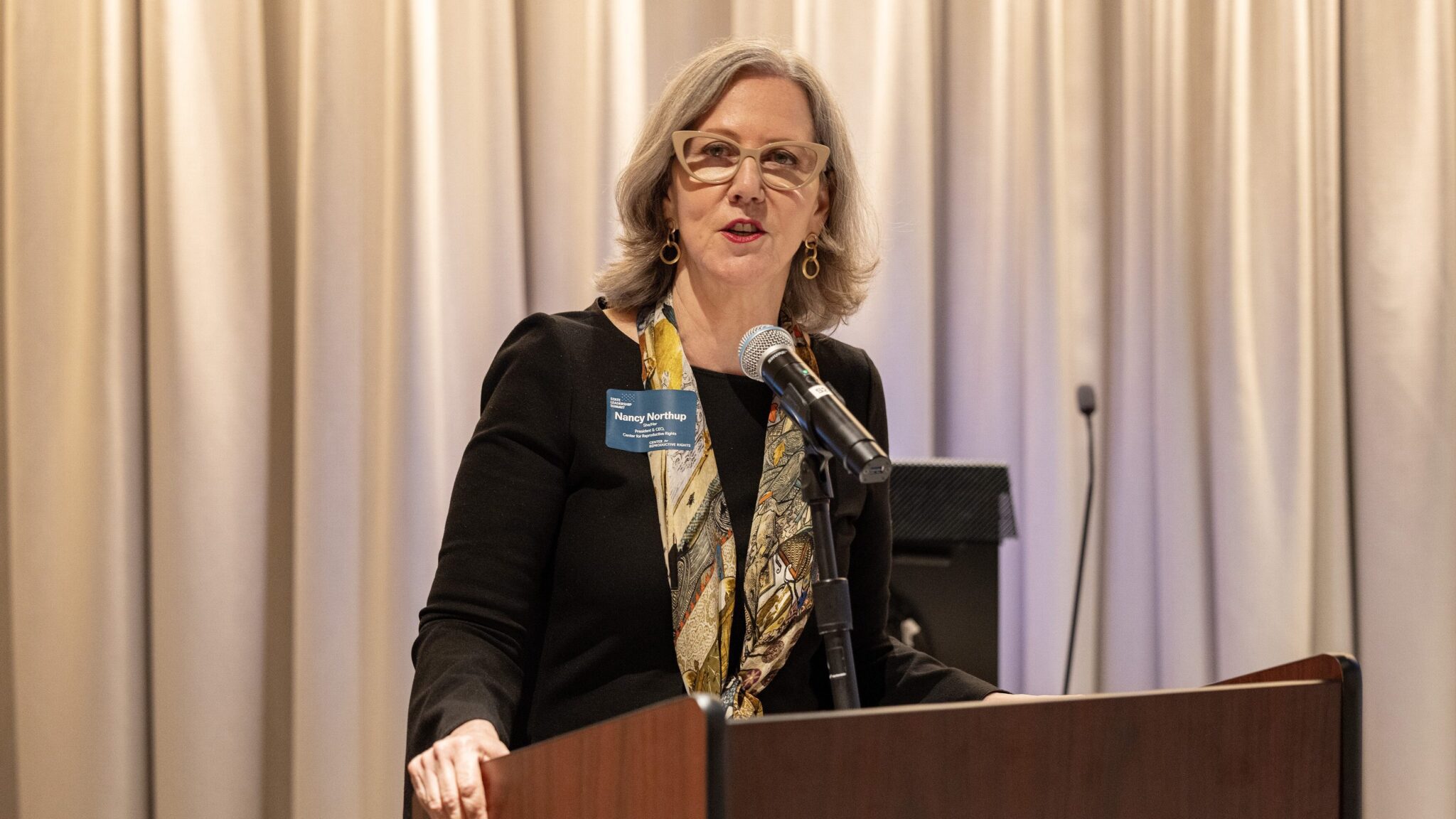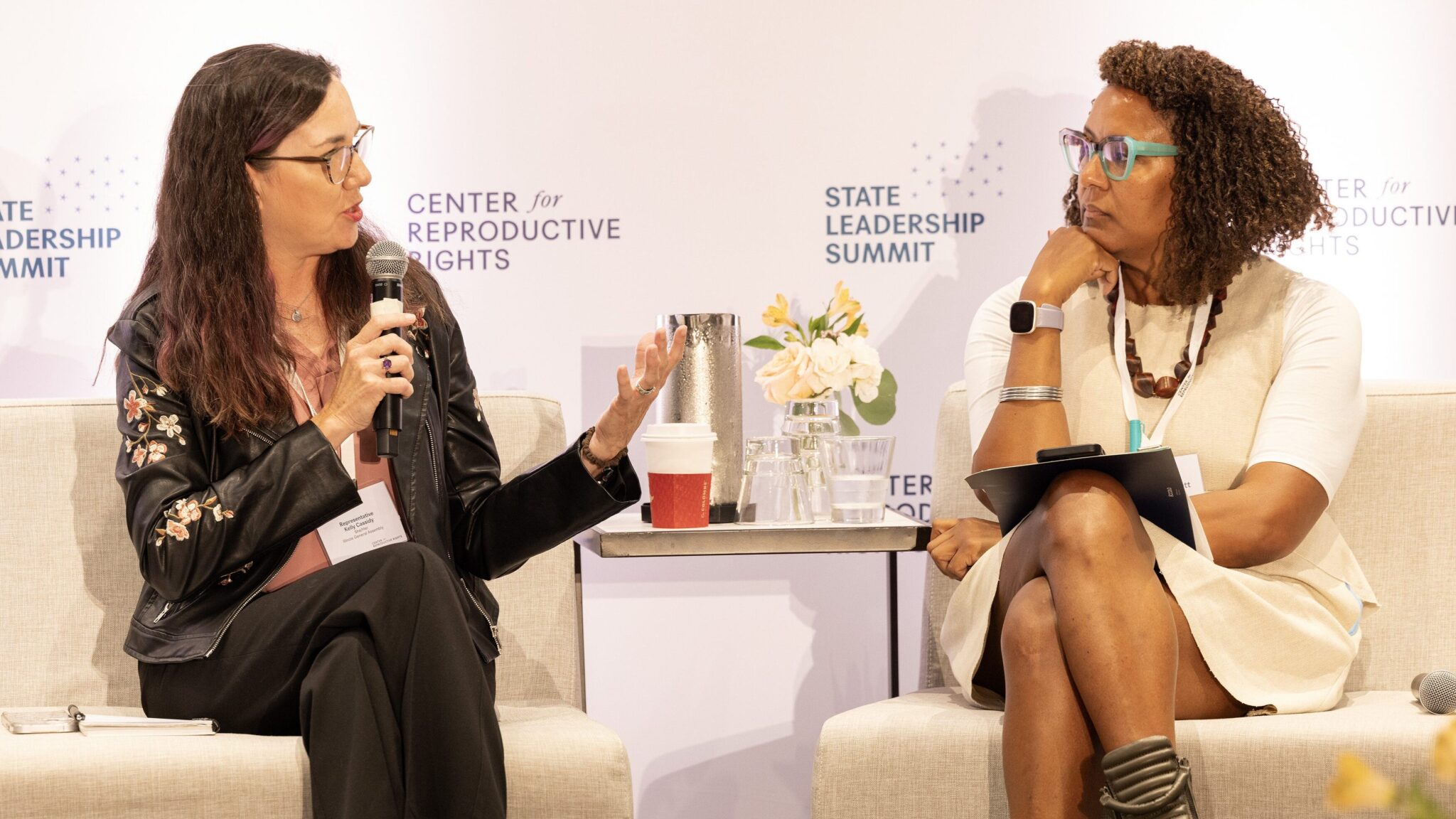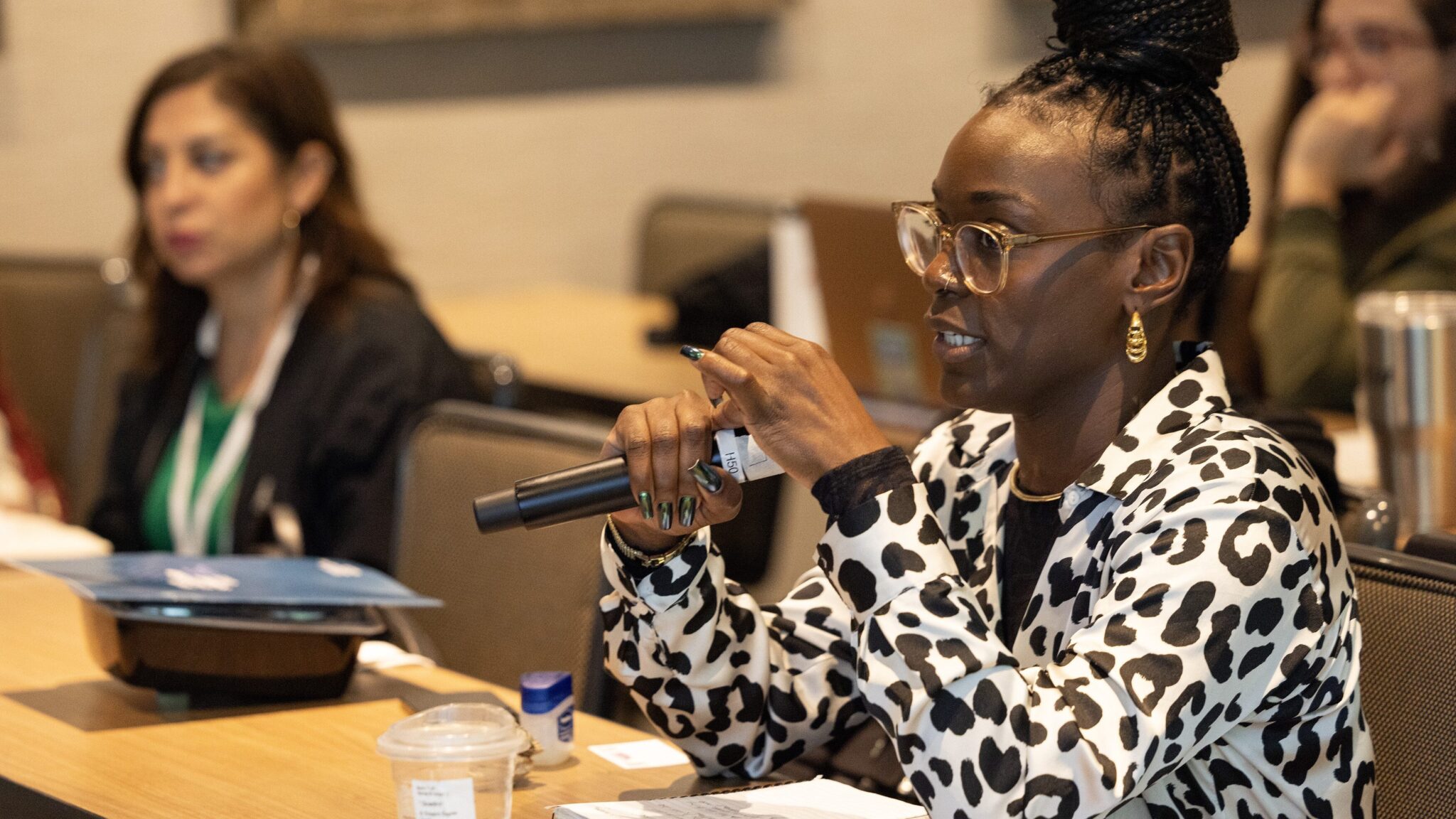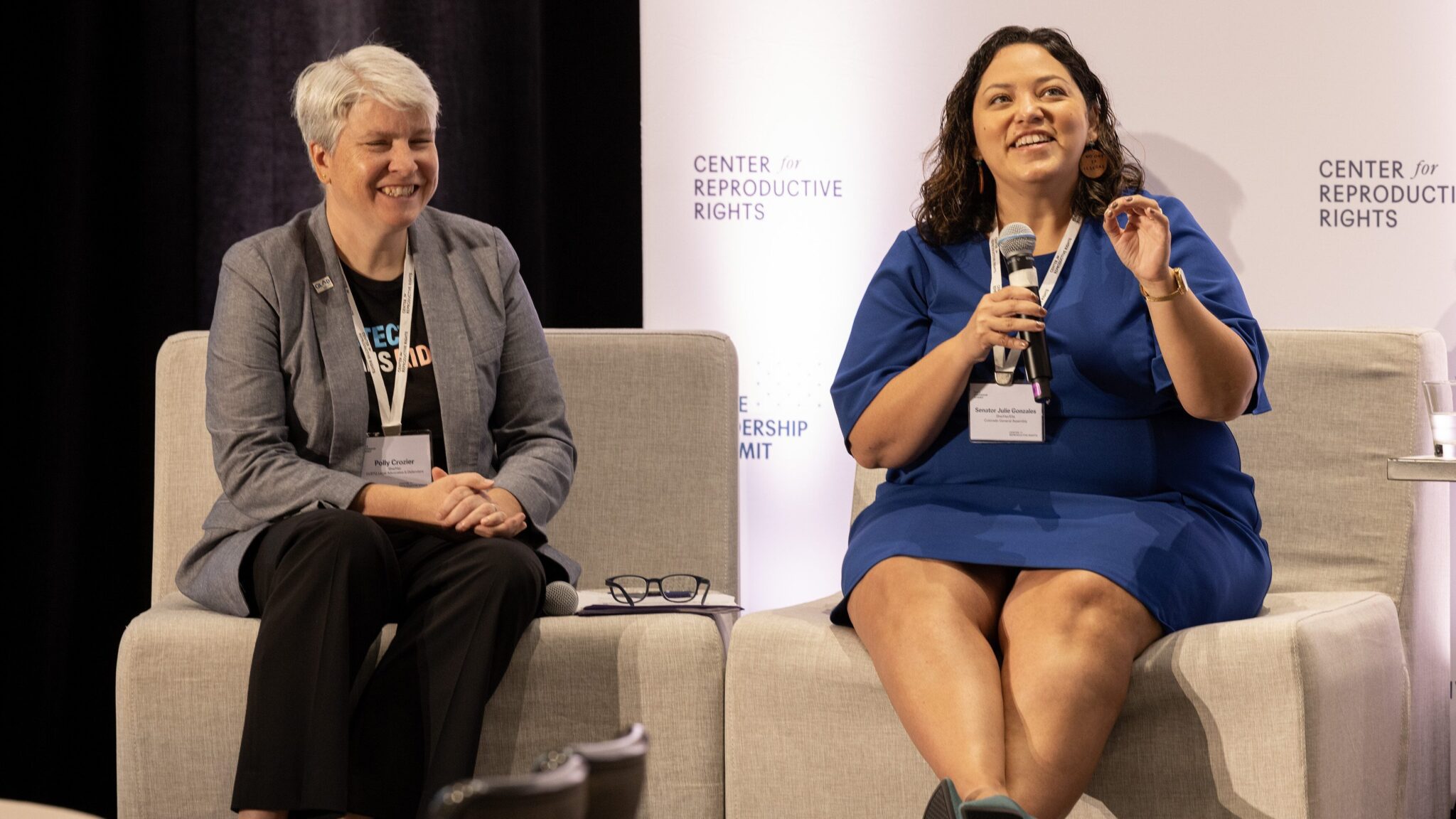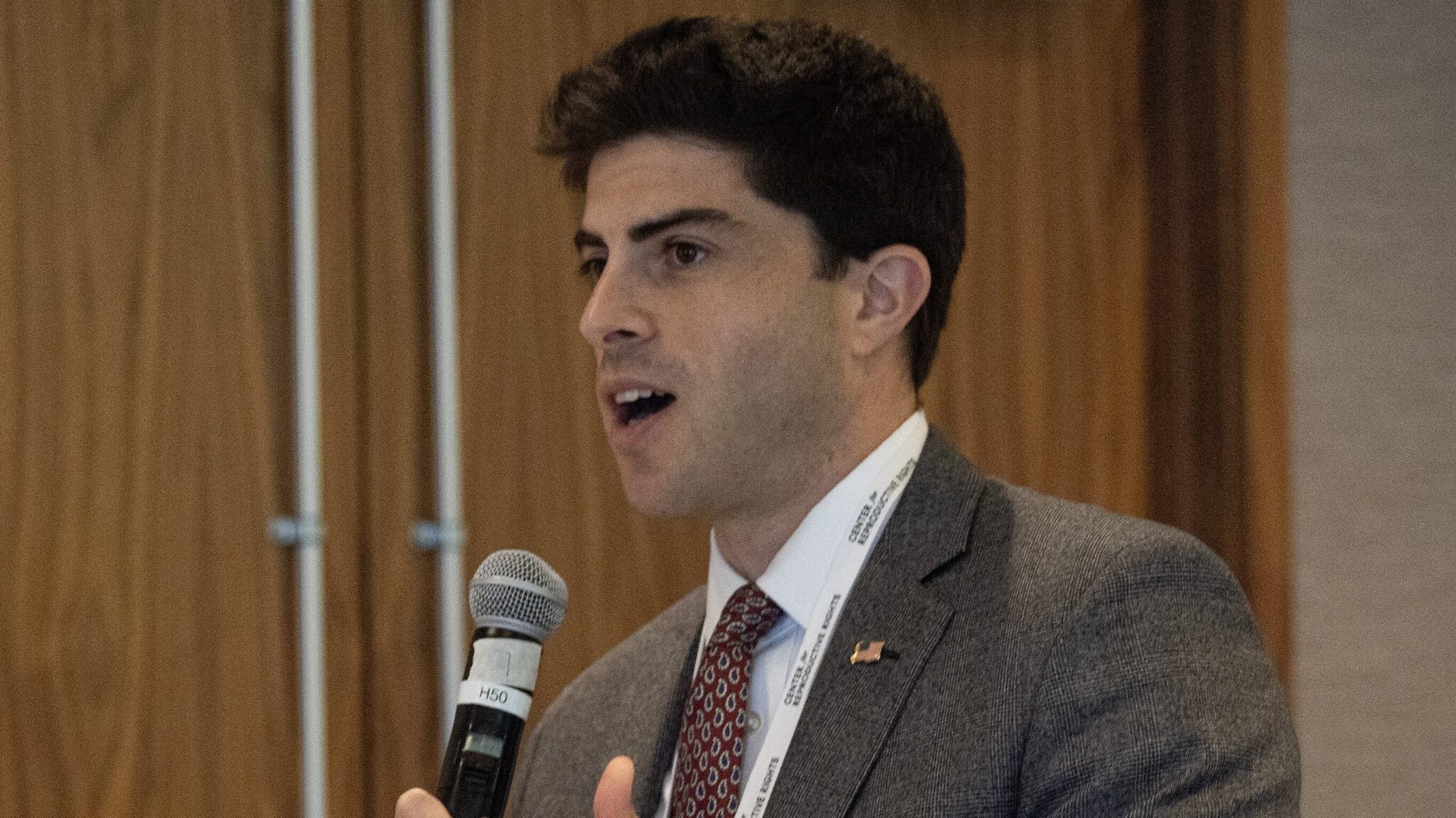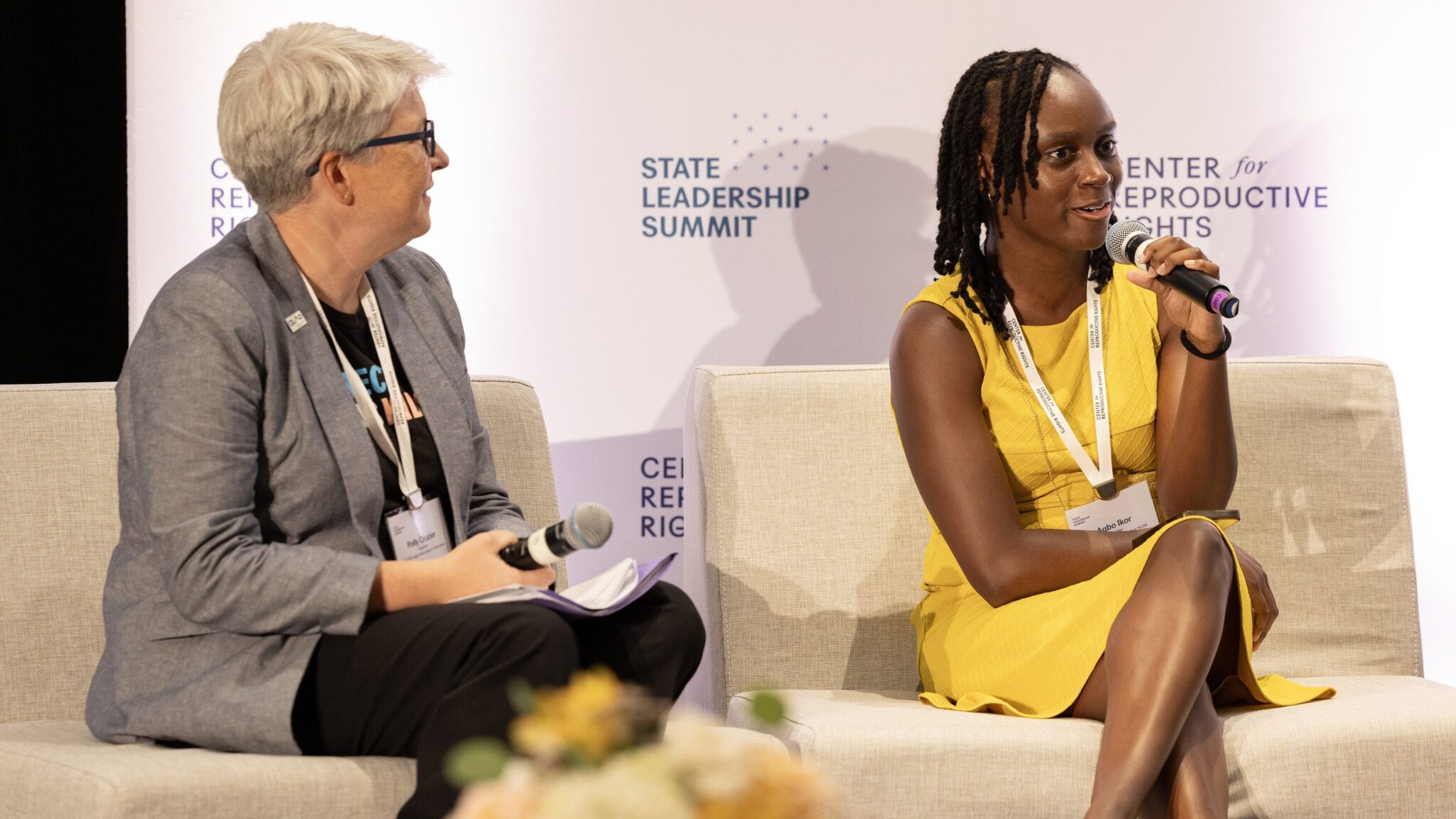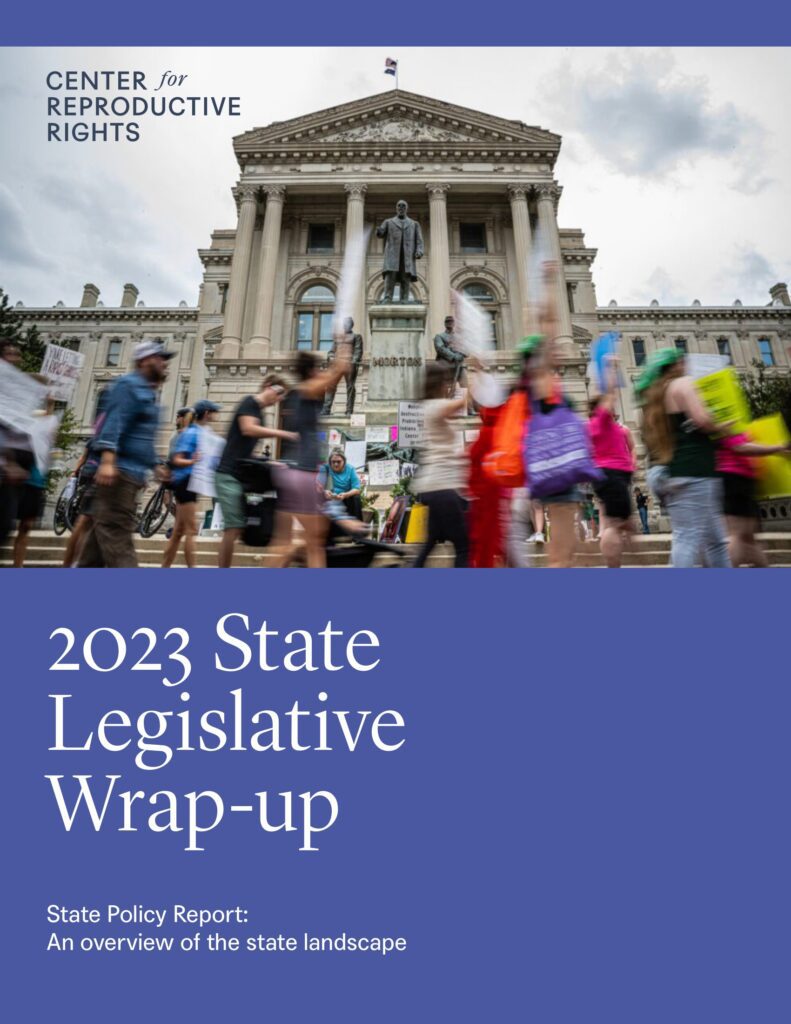State Legislators and Advocates Strategize to Advance Reproductive Rights Issues at the Center’s State Leadership Summit
Preparing for upcoming U.S. state legislative sessions, participants discuss interstate shield protections, access to fertility care, criminalization of pregnancy outcomes, state court reform and more.

Approximately 150 state legislators and advocates gathered recently at the Center for Reproductive Rights 2023 State Leadership Summit in Chicago to strategize on ways to advance reproductive rights legislation at the state level.
The Summit, organized and hosted by the Center’s state policy and advocacy team, is timed for attendees to prepare for state legislative sessions that start in January. The event, held every two years, was the first Summit held since the U.S. Supreme Court eliminated the federal constitutional right to abortion in 2022, clearing the way for states to ban abortion entirely.
Highlights of the 2023 State Summit, held September 26-28, included:
- Shared experiences of the post-Roe landscape by policy advocates in states where abortion is banned.
- Plenary sessions on how interstate shield laws can protect providers, helpers and patient information, ensuring equitable access to fertility care, and on countering punitive policies against pregnant people.
- Breakout sessions addressing state court reform, expanding access to midwifery care, regulating anti-abortion centers (fake clinics claiming to be “crisis pregnancy centers”) and protecting access to medication abortion.
- Integration of other progressive movements that intersect with reproductive rights, including LGBTQ+ rights, democracy, tech privacy and criminal justice reform.
“While so much uncertainty continues in the wake of the Dobbs decision, the Center for Reproductive Rights remains committed to ensuring access to reproductive health services in every U.S. state,” said Elisabeth Smith, Director of State Policy & Advocacy. “We hosted the State Leadership Summit because we believe in our partners’ ability to protect and advance bodily autonomy—whether that’s by passing laws that promote equitable access to the full range of health care or shifting culture in their communities. This Summit helps us all prepare for the 2024 legislative sessions, and we remain committed to supporting state leaders every step of the way.”
